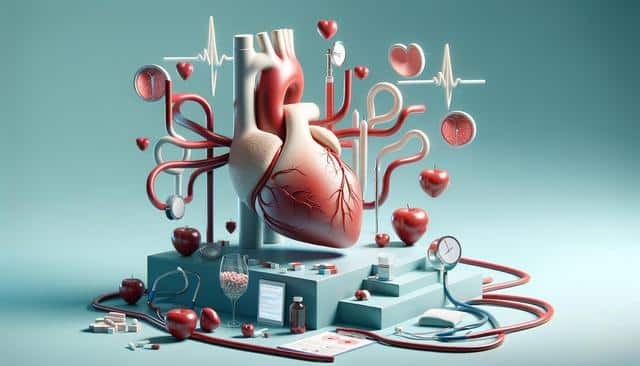
Simple Lifestyle Changes to Help Clean Your Arteries
Understanding Arterial Health
Your arteries play a crucial role in your circulatory system by carrying oxygen-rich blood from your heart to the rest of your body. Over time, plaque can accumulate inside these vessels, leading to a condition known as atherosclerosis. This buildup is primarily composed of fat, cholesterol, calcium, and other substances found in the blood. When arteries become clogged or narrowed, it increases the risk of heart attacks, strokes, and other cardiovascular problems. Knowing how to maintain clean arteries is a key component of long-term heart health. Addressing the root causes of arterial plaque, such as poor dietary choices and sedentary lifestyle, can significantly lower your risk.
Recognizing the signs of artery-related problems early can also be beneficial. Symptoms might include chest pain, shortness of breath, fatigue, or even numbness in the limbs. However, many individuals with early-stage atherosclerosis experience no symptoms at all, making prevention even more important. Regular check-ups and blood tests can help you monitor your cholesterol levels and overall cardiovascular health.
Heart-Healthy Foods That Support Clean Arteries
What you eat has a significant impact on your arterial health. Foods rich in omega-3 fatty acids, antioxidants, and fiber are particularly effective in supporting clean arteries. These nutrients work by reducing inflammation, lowering LDL (bad) cholesterol, and enhancing blood flow.
Consider incorporating the following into your daily meals:
- Fatty fish such as salmon, mackerel, and sardines for omega-3s
- Fruits like berries, oranges, and apples for antioxidants and fiber
- Vegetables, particularly leafy greens and cruciferous varieties
- Whole grains such as oats, brown rice, and quinoa
- Nuts and seeds, especially those high in unsaturated fats
Avoiding trans fats, excessive sugar, and highly processed foods can further help reduce arterial plaque. Cooking at home more often and reading nutrition labels can make a big difference in making healthier choices.
The Role of Exercise in Arterial Health
Physical activity is one of the most effective ways to maintain clean arteries. Regular exercise helps regulate blood pressure, boost HDL (good) cholesterol, and improve overall circulation. It also supports weight management, which is another important factor in reducing cardiovascular risk.
Recommended activities for cardiovascular health include:
- Brisk walking or jogging
- Swimming or cycling
- Strength training exercises
- Yoga or stretching for flexibility and stress relief
Engaging in at least 150 minutes of moderate aerobic activity each week is generally advised. Making exercise a part of your daily routine—whether it’s a morning walk or an evening gym session—can yield long-term benefits for your arteries and heart.
Lifestyle Habits That Contribute to Clean Arteries
Beyond diet and exercise, certain lifestyle habits can either support or hinder your arterial health. Smoking, for instance, damages the lining of the arteries and accelerates the buildup of plaque. Limiting alcohol intake and managing stress are also vital components of a heart-healthy lifestyle.
Here are a few habits that encourage cleaner arteries:
- Quitting smoking and avoiding secondhand smoke
- Reducing alcohol consumption to moderate levels
- Practicing stress-reducing activities, such as meditation or journaling
- Getting adequate sleep each night
- Staying hydrated throughout the day
Each of these factors contributes to a holistic approach to cardiovascular wellness. Small changes in your daily routine can make a measurable difference over time.
Monitoring and Maintaining Long-Term Arterial Health
Maintaining clean arteries is an ongoing process that requires consistent attention to your health choices. Regular medical check-ups, including cholesterol and blood pressure screenings, are essential tools for early detection and prevention. These assessments help you understand your personal risk factors and track your progress.
Working with a healthcare provider can provide tailored recommendations based on your unique health profile. For some individuals, medication may be necessary to manage cholesterol or blood pressure effectively. However, lifestyle changes remain a foundational strategy for everyone, regardless of current health status.
Building a support system can also encourage long-term success. Whether it’s joining a fitness group, cooking healthy meals with family, or setting wellness goals with friends, having a community around you can make healthy living more sustainable and enjoyable.
Conclusion: Taking Control of Your Heart Health
Maintaining clean arteries is not a one-time effort but a lifelong commitment to healthy living. By focusing on nutrient-rich foods, staying active, and cultivating supportive daily habits, you can significantly lower your risk of heart disease and improve your overall well-being. Remember, small and consistent actions often lead to the most meaningful results. Prioritizing your heart health today can pave the way for a healthier future tomorrow.


